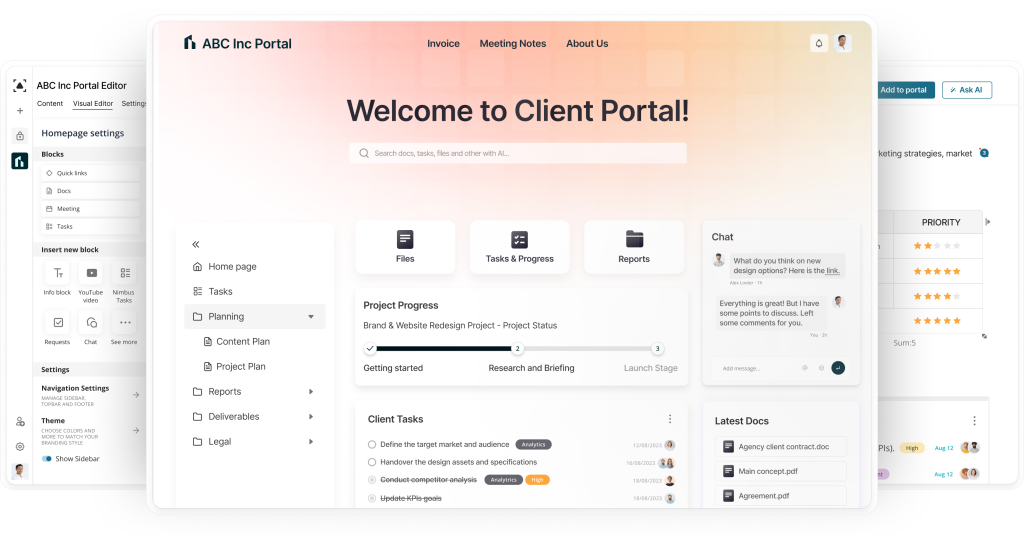
So, you’ve got a brilliant idea, an entrepreneurial spirit, and maybe even a business plan taking shape. That’s awesome! But let’s be honest – the startup journey can feel like navigating uncharted waters. There are so many directions you could go and so many decisions to make. How do you ensure you’re on the right track?
The answer lies in setting clear, meaningful goals.
What’s a Business Goal?

Business goals are the stepping stones on your path to success. They’re not just vague aspirations; they’re specific targets that outline what you want to achieve and when you want to achieve it.
Think of it like this: if your startup is a ship, your goals are the navigational markers that keep you on course. They provide direction, focus, and a way to measure progress. Without them, you’re essentially sailing blind, hoping for the best but risking getting lost along the way.
Why Do You Need to Set Business Goals?
The startup journey is exhilarating but can also feel like wandering through a maze without a map. Goals are your compass, guiding you toward your desired destination amidst the twists and turns of entrepreneurship. But why exactly are they so essential for your startup’s success? Let’s break it down.
Compass for Your Journey
Goals give your startup a sense of direction and a clear vision of its future. This helps you prioritize your efforts, align your team, and make strategic decisions that move you closer to your ultimate destination.
Measuring Stick for Progress
You turn your aspirations into tangible metrics by setting SMART goals – Specific, Measurable, Achievable, Relevant, and Time-Bound. This allows you to track your progress, celebrate milestones, and identify areas where you must course-correct.
Motivational Boost
Goals give your team something to rally around and a shared purpose to work towards. When everyone pulls in the same direction, motivation soars, collaboration thrives, and extraordinary results are possible.
Resource Allocation Guide
Startups often have limited resources, so investing them wisely is crucial. Clear goals help you prioritize tasks, allocate budget effectively, and avoid wasting time and money on activities that don’t contribute to your overall vision.
Risk Management Tool
By anticipating potential challenges and roadblocks, you can proactively develop contingency plans and mitigate risks before they derail your progress.
Magnet for Investors and Partners
A well-articulated set of goals demonstrates your ambition, preparedness, and understanding of the market – all qualities that attract potential investors and strategic partners.
How to Set Business Goals and Reach Them?

Setting goals is more than just wishful thinking — it’s the cornerstone of your startup’s success. But how do you ensure your goals are more than just empty promises? Here’s a breakdown of how to set business goals that actually move the needle.
Vision First, Goals Second
Before you dive into the nitty-gritty of specific targets, take a moment to envision the future you want for your startup. What impact do you want to make? What problems do you want to solve? This overarching vision will guide your goal-setting process and ensure your efforts are aligned with your ultimate purpose.
Know Where You Stand
Take a clear-eyed look at your startup’s current reality. Conduct a SWOT analysis (Strengths, Weaknesses, Opportunities, Threats) to assess your internal and external landscape.
What resources do you have? What challenges do you face? This honest assessment will help you set realistic goals that build on your strengths and address your weaknesses.
Get SMART
The SMART framework is your goal-setting secret weapon. Make sure your goals are:
- Specific: Avoid vague language like “grow the business.” Be precise – “increase monthly revenue by 15%.”
- Measurable: Quantify your goals so you can track progress. How will you know if you’ve succeeded?
- Achievable: Be ambitious but realistic. Can you actually achieve this goal with your current resources and timeline?
- Relevant: Does this goal align with your overall vision and mission? Will it move your business forward in a meaningful way?
- Time-Bound: Set a deadline to create urgency and focus. When do you want to achieve this goal?
Break It Down
Take your big, audacious goals and break them into smaller, actionable steps. These smaller milestones will make your goals seem less daunting and provide a clear roadmap for your team. Think of it like climbing a mountain – focus on reaching the next base camp, not just the summit.
Assign Ownership
Every goal needs a champion. Assign responsibility for each goal or milestone to a specific team member or department. This creates accountability and ensures everyone knows their role in achieving the company’s objectives.
Track, Measure, and Adapt
Goals are not static. Regularly track your progress, measure your results, and be prepared to adjust your strategies as needed. Are you on track to meet your deadlines? Are your metrics moving in the right direction? Use data to inform your decisions and stay agile in the face of change.
Celebrate Success (and Learn from Failures)
Take time to acknowledge your wins, big and small. Celebrate your team’s achievements and use them as motivation to keep pushing forward. If you don’t meet a goal, don’t despair. Analyze what went wrong, learn from your mistakes, and use that knowledge to refine your future goals.
Key Types of Business Goals

Now that we’ve covered the how-to of goal-setting let’s focus on the two main types of goals that will shape your startup’s trajectory: long-term and short-term.
Long-Term Business Goals
These big, audacious goals define your startup’s ultimate purpose and vision. They’re the dreams that keep you going when the going gets tough. Think of them as your guiding light, illuminating the path to success over several years.
Long-term goals are typically broad and aspirational. They often focus on:
- Market Dominance: Becoming the industry leader or capturing a significant market share.
- Financial Success: Achieving sustainable profitability, reaching a specific valuation, or going public.
- Impact: Making a lasting difference in your industry, community, or the world.
- Innovation: Pioneering groundbreaking products or services that change the game.
- Global Expansion: Taking your business beyond borders and establishing a global presence.
Examples of Long-Term Business Goals:
- “Become the most trusted and innovative software provider in the education sector by 2030.”
- “Achieve a valuation of $100 million within five years through organic growth and strategic acquisitions.”
- “Expand our operations to at least three international markets within the next decade.”
- “Develop and patent a revolutionary technology that transforms how people interact with their environment.”
Long-term business goals provide a sense of purpose, inspire your team, and attract investors who share your vision. They also serve as a filter for decision-making, helping you stay focused on what truly matters for your startup’s long-term success.
Short-Term Business Goals
While long-term goals set the direction, short-term goals pave the way. These are the smaller, more immediate targets that you can achieve within a shorter timeframe, typically a few months to a year. They are the actionable steps that move you closer to your long-term vision.
Short-term goals are more specific and tactical. They often focus on:
- Revenue Growth: Increasing sales, acquiring new customers, or launching new products.
- Cost Reduction: Optimizing processes, reducing waste, or negotiating better supplier deals.
- Operational Efficiency: Streamlining workflows, improving productivity, or upgrading technology.
- Team Development: Hiring key personnel, providing training and development opportunities, or improving employee satisfaction.
- Marketing & Branding: Increasing brand awareness, launching marketing campaigns, or building a strong online presence.
Examples of Short-Term Business Goals:
- “Increase website traffic by 25% in the next quarter through targeted SEO and content marketing.”
- “Achieve a 90% or higher customer satisfaction rating within six months through improved customer service.”
- “Launch a new product feature by the end of the year that addresses a key customer pain point.”
- “Reduce customer acquisition cost by 10% in the next two quarters by optimizing marketing channels.”
Short-term goals provide a sense of momentum and accomplishment, keeping your team motivated and engaged. They also allow for quicker course correction and adaptation to changing market conditions.
Remember that short-term goals should always support your long-term vision. They’re the building blocks leading you to your ultimate destination.
Examples of Business Goals for Startups and Small Businesses

While the importance of goal setting is clear, translating it into action can feel overwhelming. That’s why we’ve compiled a list of specific, actionable business goals categorized by key areas of focus. Use these as inspiration or a starting point to tailor your SMART goals!
Financial Goals
- Increase monthly recurring revenue by 15% within the next six months through targeted marketing campaigns and upselling strategies.
- Reduce customer acquisition cost (CAC) by 10% within the next quarter by optimizing marketing channels and improving lead qualification.
- Secure seed funding of $500,000 by Q3 of this year by pitching to angel investors and venture capital firms.
- Achieve profitability within 12 months of product launch by controlling costs and increasing sales volume.
- Increase gross profit margin by 5% within the next year by negotiating better supplier contracts and optimizing production processes.
- Decrease customer churn rate by 8% within the next six months by implementing proactive customer retention strategies and improving customer satisfaction.
- Increase average order value (AOV) by 12% within the next quarter through upselling and cross-selling techniques.
- Reduce outstanding accounts receivable by 20% within the next two months by improving invoicing and collection processes.
- Increase return on investment (ROI) for marketing campaigns by 15% through data-driven analysis and optimization.
Marketing Goals
- Grow social media following by 40% within six months by posting engaging content and running targeted ads.
- Increase website traffic by 25% within the next quarter by optimizing for search engines and creating high-quality content.
- Generate 300 qualified leads per month through lead magnets, webinars, and other content marketing initiatives.
- Improve email open rates by 10% and click-through rates by 5% by segmenting audiences and personalizing email campaigns.
- Launch a successful influencer marketing campaign that reaches 100,000 potential customers by the end of the year.
- Achieve a 5% conversion rate from website visitors to leads within the next three months through targeted landing pages and optimized calls to action.
- Increase brand awareness by 35% within one year through a combination of public relations, content marketing, and social media initiatives.
- Launch a successful customer referral program that generates 100 new leads per quarter by the end of the year.
- Increase organic search rankings for top keywords by 20 positions within six months through a focused SEO strategy.
- Host a successful industry webinar with 500 attendees within the next quarter to showcase thought leadership and generate leads.
Sales Goals
- Increase sales revenue by 20% year-over-year by expanding into new markets and launching new product lines.
- Shorten average sales cycle length by 15% within the next six months by implementing a more efficient sales process.
- Improve customer lifetime value (CLTV) by 10% through upselling, cross-selling, and customer loyalty programs.
- Increase average deal size by 8% by offering bundled packages and premium pricing options.
- Achieve a customer conversion rate of 5% by improving lead nurturing and sales follow-up processes.
- Increase sales productivity by 10% within the next quarter by implementing a new sales enablement tool.
- Close 25% more deals in Q4 compared to Q3 by focusing on high-potential prospects and refining sales pitches.
- Expand into three new geographic markets within the next 18 months to reach a wider customer base.
- Develop a strategic partnership with a complementary business by the end of the year to increase sales and expand reach.
- Implement a customer relationship management (CRM) system within three months to streamline sales processes and improve customer insights.
Customer Satisfaction Goals
- Increase Net Promoter Score (NPS) by 10 points within one year by actively soliciting and addressing customer feedback.
- Reduce customer churn rate by 5% in the next quarter by implementing proactive customer retention strategies.
- Respond to all customer inquiries within 24 hours to ensure timely and effective customer support.
- Resolve all customer complaints within 48 hours to demonstrate a commitment to customer satisfaction.
- Increase customer satisfaction ratings by 15% by exceeding customer expectations and delivering exceptional service.
- Increase the number of positive online reviews by 25% within six months by actively encouraging satisfied customers to share their feedback.
- Create a customer loyalty program that rewards repeat customers and increases their lifetime value.
- Implement a customer satisfaction survey with a response rate of at least 20% within the next quarter to gather valuable feedback.
- Reduce average customer support response time to under 1 hour by optimizing workflows and increasing staffing during peak hours.
- Achieve a customer retention rate of 80% within one year by proactively addressing customer concerns and providing exceptional service.
Product Development Goals
- Launch a minimum viable product (MVP) within three months by focusing on core features and gathering user feedback.
- Release two major product updates per year to keep up with customer needs and market trends.
- Reduce time to market for new features by 20% by implementing agile development methodologies.
- Achieve a 99% uptime for your product or service to ensure reliability and customer satisfaction.
- Gather user feedback from at least 100 beta testers before launching a new product or feature.
- Conduct thorough market research to identify a new product opportunity with a potential market size of at least $1 million.
- Launch a beta version of a new product feature to a select group of users within two months for feedback and testing.
- Reduce average customer support tickets related to product issues by 15% within six months by improving product quality and documentation.
- Develop a product roadmap for the next 12 months that outlines key features, release dates, and resource requirements.
- Increase user engagement with the product by 20% within the next quarter by implementing new features and improving user experience.
Operational Goals
- Reduce operational costs by 8% within the next year by identifying and eliminating inefficiencies.
- Implement a new project management system within two months to improve team collaboration and project tracking.
- Automate at least three repetitive tasks within the next quarter to free up employee time for more strategic work.
- Reduce employee onboarding time by 50% by creating a comprehensive onboarding program and utilizing digital tools.
- Achieve a 90% employee satisfaction rate by fostering a positive work culture and providing opportunities for growth.
- Improve customer support response time by 10% by implementing a new ticketing system and optimizing workflows.
- Achieve a 98% on-time delivery rate for products or services by refining production processes and optimizing logistics.
- Reduce energy consumption by 15% within the next year through energy-efficient practices and equipment upgrades.
- Implement a robust cybersecurity strategy by the end of the year to protect sensitive data and prevent breaches.
- Develop a comprehensive employee training program that covers key skills and knowledge areas to enhance productivity and performance.
The Best Digital Tools to Reach Business Goals Faster
Having the right digital tools can mean the difference between thriving and just surviving. For startups, leveraging technology is essential to streamline operations, maximize efficiency, and achieve those ambitious goals faster. With countless options vying for your attention, how do you choose the tools that will truly supercharge your startup’s journey?
Fear not, fellow entrepreneurs! We’ve curated a list of the best digital tools designed to tackle your biggest challenges and propel your business forward.
ClickUp: This all-in-one platform combines project management, task tracking, and communication features, making it ideal for startups that need a centralized hub for collaboration.

Asana: Known for its flexibility and visual project boards, Asana is perfect for teams that thrive on visual organization and agile workflows.

Trello: This simple yet powerful tool is great for startups that need a quick and easy way to visualize tasks and track progress.

FuseBase: An all-in-one client collaboration platform that is a game-changer for startups seeking a comprehensive solution to streamline client collaboration, project management, and knowledge sharing. This powerful platform goes beyond traditional CRMs, offering a unique blend of features that empower businesses to work smarter, faster, and more effectively.

Summing Up

Setting business goals is like charting a course for your startup’s journey. They serve as your compass, guiding you toward your destination and helping you navigate the unpredictable waters of entrepreneurship. Remember, your goals are not etched in stone; they’re living, breathing aspirations that should evolve alongside your business.
Embrace the power of SMART goals, leverage the right tools and resources, and, most importantly, believe in your vision. With dedication, perseverance, and a well-defined path, your startup can achieve remarkable feats and impact the world. So, set your goals high and watch your startup soar!
